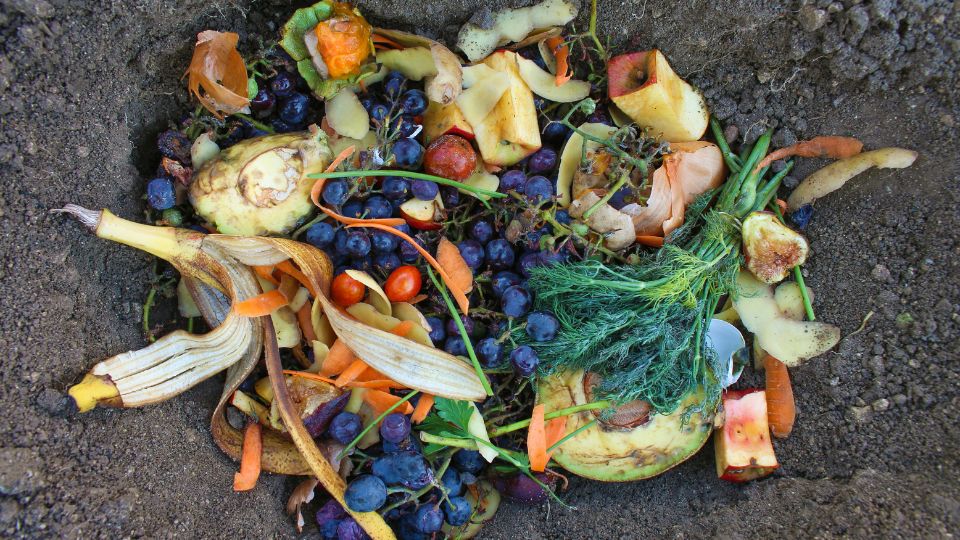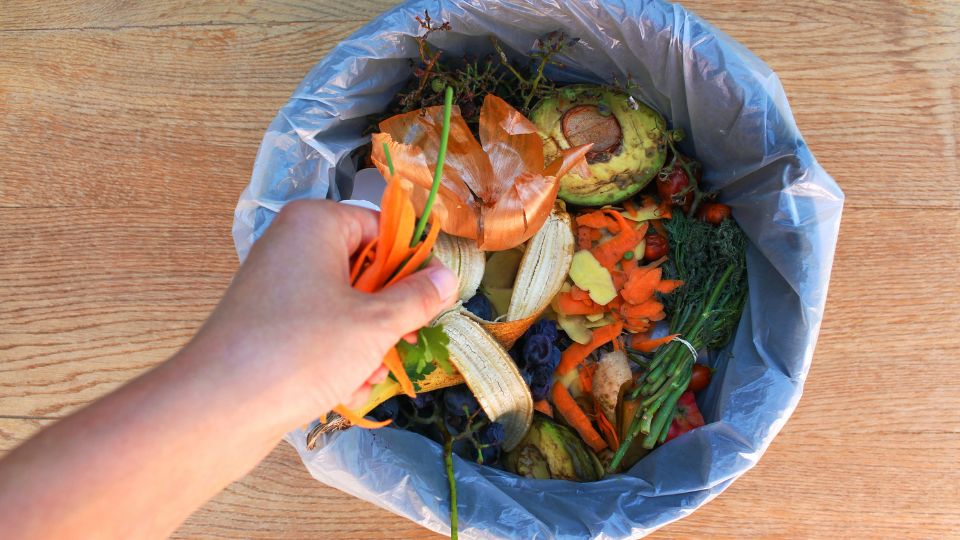
Quick Summary:
- Biodegradable food waste bags break down more quickly than traditional plastics, but compostable bags, made from materials like cornstarch, are designed to turn into nutrient-rich compost in a compost bin or composter.
- Foods like dairy, meat, and greasy items, along with non-biodegradable plastics and treated wood, should not be composted as they can disrupt the composting process and create problems in your compost bin.
- Use appropriate compost bins and composters, and follow best practices like turning the compost and maintaining moisture levels to ensure efficient decomposition and high-quality compost production.
Understanding the biodegradability of food waste bags is crucial for effective waste management in your business.
As UK business owners, it’s essential to know what can and cannot be composted, ensuring that your compost bins and composters are used efficiently.
This blog will explore the biodegradability of food waste bags, discuss which foods and types of waste should not be composted, and provide tips for enhancing your waste management practices.
Table of Contents
- Are Food Waste Bags Biodegradable?
- Biodegradable vs. Compostable: What’s the Difference?
- What Foods Cannot Be Composted?
- Enhancing Your Waste Management Practices
- Conclusion
Are Food Waste Bags Biodegradable?

Food waste management has become a significant focus for businesses aiming to reduce their environmental impact.
Biodegradable food waste bags offer an appealing solution, but it’s important to understand their actual environmental benefits and limitations.
What Are Food Waste Bags Made Of?
Food waste bags are typically made from various materials, including biodegradable plastics, compostable materials, and traditional plastic.
Biodegradable bags are designed to break down more quickly than conventional plastic, but the exact breakdown process and timeline can vary significantly depending on the bag’s composition and disposal conditions.
Biodegradable vs. Compostable: What’s the Difference?

It’s essential to differentiate between biodegradable and compostable.
While biodegradable bags break down into smaller pieces over time, compostable bags are specifically designed to break down into nutrient-rich compost when placed in a compost bin or composter.
Compostable bags are generally made from materials like cornstarch or paper that decompose in a composting environment.
What Foods Cannot Be Composted?
When using compost bins, it’s crucial to avoid composting certain foods. Items such as dairy products, meat, and oily or greasy foods should not be added to your compost bin. These foods can attract pests, create unpleasant odours, and potentially disrupt the composting process.
Stick to composting fruit and vegetable scraps, coffee grounds, and eggshells for a successful composting experience.
Enhancing Your Waste Management Practices
For effective waste management, it’s important to use the right types of compost bins and composters. Ensure that your compost bin is suitable for the materials you are composting and that you follow best practices for maintaining it.
Regularly turning the compost and keeping it moist can accelerate the decomposition process and produce high-quality compost.
Conclusion
In summary, while biodegradable food waste bags can offer benefits over traditional plastics, compostable bags are more effective when using a compost bin or composter.
Avoid composting non-compostable foods and waste types to maintain a healthy composting environment. By selecting the right bags and adhering to proper composting guidelines, you can enhance your waste management efforts.
For a more sustainable future, choosing the right compost and managing food waste effectively is key.








